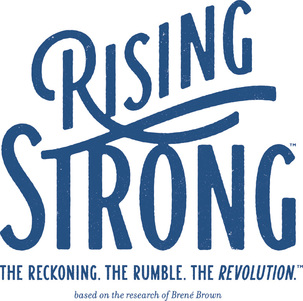THE RECKONING
The Reckoning means reckoning with our emotions when we fail. We must recognize and acknowledge our emotions, rather than denying them. It doesn’t help to offload them by acting out, shutting down, or getting hamstrung by shame.
To recognize our emotions associated with failure, we must get curious. This is difficult because it takes vulnerability and uncertainty to get curious about ourselves. It’s much easier to get defensive, act superior, numb out, or overreact and fire off that email we’ll regret later. It’s a brave act to acknowledge our feelings rather than deny them.
To recognize our emotions associated with failure, we must get curious. This is difficult because it takes vulnerability and uncertainty to get curious about ourselves. It’s much easier to get defensive, act superior, numb out, or overreact and fire off that email we’ll regret later. It’s a brave act to acknowledge our feelings rather than deny them.
THE RUMBLE
The Rumble means rumbling with our story. An informal definition of rumble is to take part in a street fight, so the word implies an element of struggle and danger. We all make up stories about our struggles based on incomplete information. It’s important that we reality-check our stories. When we rumble with our story, we move from our first knee-jerk responses and seek a deeper understanding of our thoughts, feelings, and behaviors about who we are and how we engage with others.
- “What do I know objectively?”
- “What more do I need to learn and understand about the other people in the story?”
- “What more do I need to learn and understand about myself?”
THE REVOLUTION
The Revolution is about using the Rising Strong process to create revolutionary, rather than incremental transformation by making it a daily practice and way of engaging with the world. Dr. Brown stresses that it starts with a “vision that we can rise from our experiences of hurt and struggle in a way that allows us to live more wholehearted lives. However, transforming the way we live, love, parent, and work requires us to act on our vision.”
Dr. Brown continues, “We know that rumbling is going to be tough, but we head straight into it because we know running is harder. We wade into the brackish delta with open hearts and minds because we’ve come to learn that the wisdom in the stories of our falls makes us braver.”
Dr. Brown continues, “We know that rumbling is going to be tough, but we head straight into it because we know running is harder. We wade into the brackish delta with open hearts and minds because we’ve come to learn that the wisdom in the stories of our falls makes us braver.”
